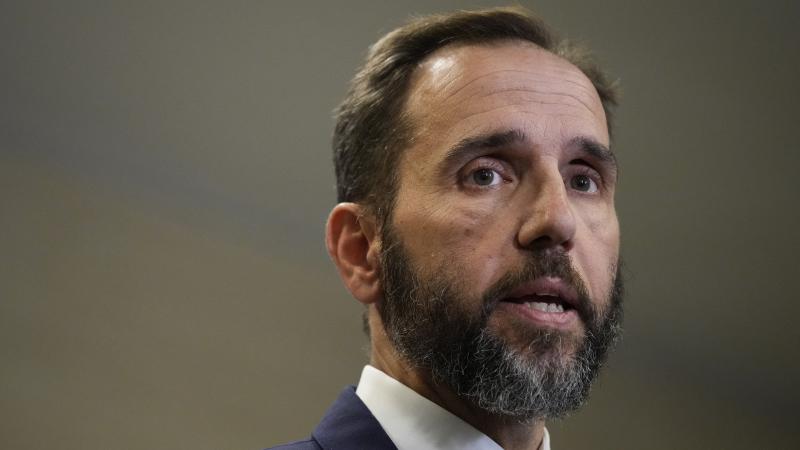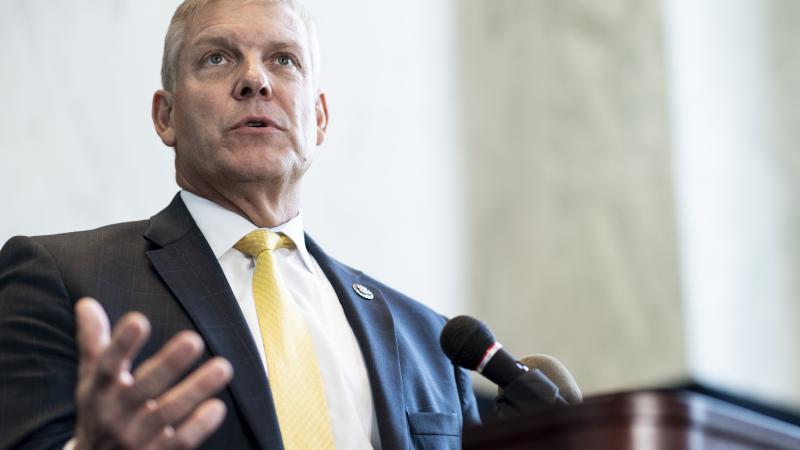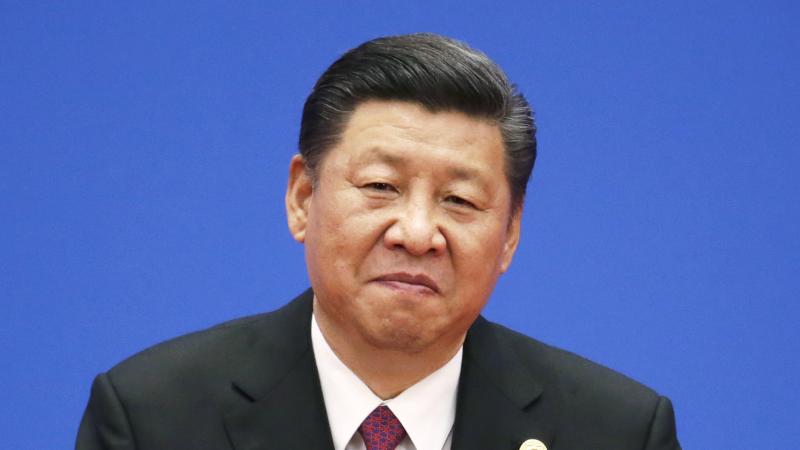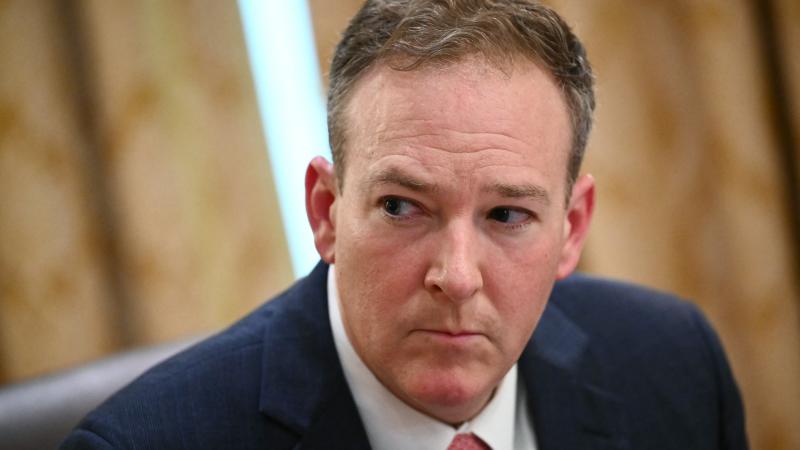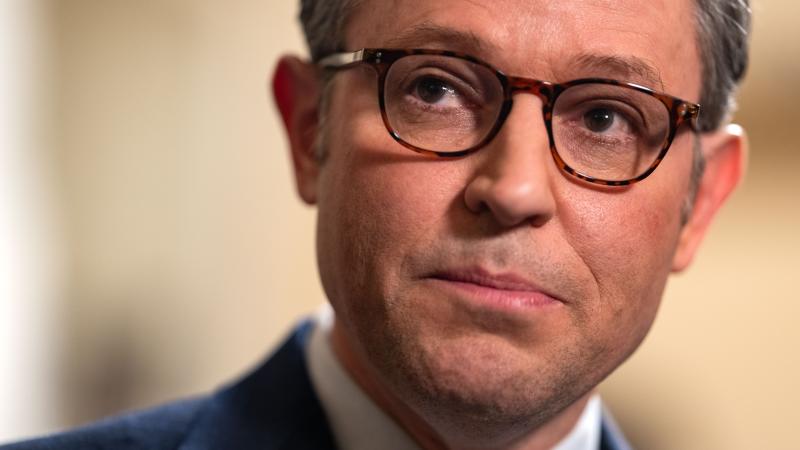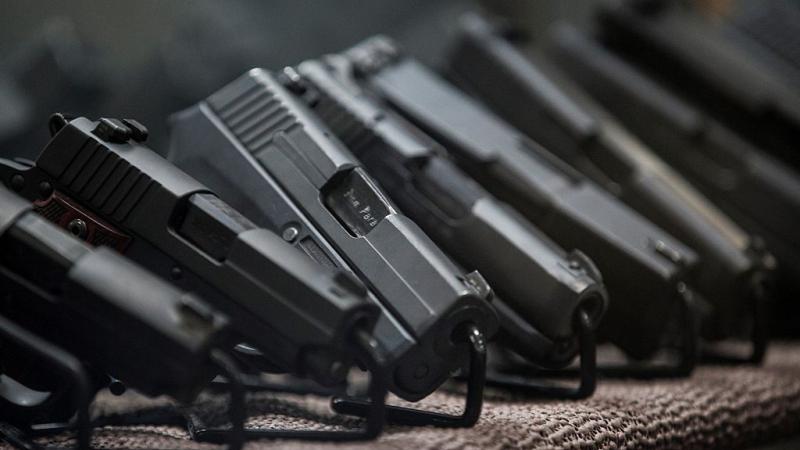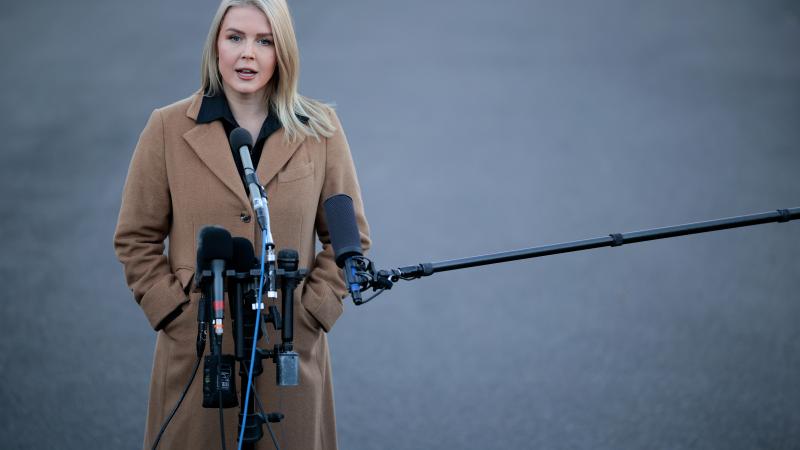DOJ loses another public corruption case, raising concerns of motive, prosecutorial misconduct
The recent court-ordered reversal of Rep. Fortenberry's conviction is the latest in a series of reversals against high-profile public officials prosecuted by the DOJ.
On Tuesday, the Court of Appeals for the Ninth Circuit overturned the conviction of former GOP Representative Jeff Fortenberry for lying to the FBI about illegal campaign contributions. The panel of three federal judges ruled that the Justice Department wrongly tried the former Representative in Los Angeles instead of his home state of Nebraska or Washington, D.C., where he served in Congress.
The overturning of Fortenberry’s conviction marks the latest in a series of reversals of convictions against high-profile elected officials in the last two decades. Overall, the DOJ has a mixed record in getting charges to stick against elected officials. Of ten public corruption cases over the past two decades reviewed by Just the News, three resulted in reversed convictions.
Among the rest, three sentences were commuted by presidential pardon under the Trump Administration and in one other, federal prosecutors failed to convince a jury to find the defendant guilty.
Legal experts say the reversal of Fortenberry’s conviction may have implications for the proceedings against former President Donald Trump as the DOJ’s special counsel seeks convictions on conspiracies to defraud the government, disenfranchising voters, and obstruction.
“There is a great deal to be looked at involving public corruption cases at the DOJ,” former U.S. Attorney Joe diGenova told Just the News on Friday. “The Department has a checkered history with these cases and the Public Integrity Section has come under scrutiny,” he continued.
“The Fortenberry case is an example of bad judgement, if not political maneuvering. It should never have been brought were it was brought,” he said, referring to the Central District of California, a different location than where any crime was allegedly committed. Cases appealed from that court go to the Ninth Circuit.
“The same thing appears to be hanging out in the Menendez case,” diGenova said, referring to the indictment of New Jersey Democratic Senator Bob Menendez. diGenova insisted that, despite whether one believes Menendez is guilty or not, he should have been tried in the proper venue, where the crimes were committed according to the Constitution.
"Why was that case brought in New York? The [Southern District of New York] and the Public Integrity Section did not want the case to be brought in New Jersey where he has support,” diGenova said. “He was previously tried [in New Jersey] and the case failed. The case should be in New Jersey. They wanted to try Menendez in a place where he had no influence in the jury selection,” he continued.
DiGenova believes that the track record of the Public Integrity Section may have bearing on the ongoing cases against former President Trump. “The Public Integrity Section has been infused with partisan animus,” diGenova believes. “It is believed by many people on the bench and bar that there is political motivation,” he continued.
In support of his argument, he pointed to the fact that Jack Smith, the special counsel pursuing the investigation into Trump used to head the Public Integrity Section. Since Smith filed charges against the former president for the events surrounding January 6, 2021, Smith has faced accusations of being partial or biased by elected officials and commentators alike. As an example, Senator Chuck Grassley, R-Iowa, expressed concerns about Smith’s past work and his staff, and they show a “biased view” against Trump.
The three cases reversed by the courts raise questions about the track record of the Public Integrity Section.
Process crimes
Legal experts have described these type of charges as "process crimes," where the prosecutors have been criticized as bringing such charges only against high-profile defendants as to whom there is insufficient evidence to charge the more serious underlying offenses that prompted the initial investigation.
UCLA Law professor Stephen Bainbridge was quoted in a 2008 law review journal criticising this prosecutorial approach, referring to the similar convictions of Martha Stewart and businessman Frank Quattrone: "In neither case did the government indict the defendant with respect to the alleged underlying violations. Instead, both were indicted for subsequent acts that allegedly obstructed the investigation. Yet, if that investigation did not result in charges, it seems vindictive to charge obstruction (especially since in neither case was the obstruction very successful in interfering with the investigation)."
Rep. Jeff Fortenberry
In June 2022, Former Rep. Jeff Fortenberry, R-Neb., was sentenced to two years probation for lying to the FBI and concealing information from investigators. He had been convicted by a federal jury in March of that year in the Central District of California. Federal prosecutors presented evidence that Fortenberry lied to FBI investigators who were probing a illegal contributions to Fortenberry’s campaign by billionaire Gilbert Chagoury, a foreign national.
Earlier this week, the Ninth Circuit Court of Appeals reversed the 2022 conviction over the DOJ’s decision to prosecute the representative in Los Angeles, despite no charged crime being committed there.
“Fortenberry’s trial took place in a state where no charged crime was committed, and before a jury drawn from the vicinage of the federal agencies that investigated the defendant,” Judge James Donato wrote in the opinion.
“The Constitution does not permit this. Fortenberry’s convictions are reversed so that he may be retried, if at all, in a proper venue,” he continued.
The federal prosecutors tried to justify Fortenberry’s trial being held in California by arguing that the effects of his false statements impacted the investigation which proceeded from Los Angeles. The judge slapped down that argument.
“[T]here certainly are crimes that may be prosecuted where their effects are felt,” Donato wrote on behalf of the court. “But those situations are markedly different from a [false statements] offense, for which no statute nor universal recognition permits a prosecution where the effects of a statement are felt.”
DiGenova told Just the News that the decision to try Fortenberry outside his home state or his place of work could have been an effort to secure a more friendly jury.
Gov. Bob McDonnell
In addition to Fortenberry's, at least two other high profile convictions of public officials were overturned and in one instance the federal prosecutors failed to convince a jury of the charges.
In 2016, the United States Supreme Court reversed the conviction of former Virginia Governor Bob McDonnell after he was charged and convicted “for soliciting and obtaining payments, loans, gifts and other items from Star Scientific, a Virginia-based corporation, and Jonnie R. Williams Sr., Star Scientific’s then chief executive officer, in violation of federal public corruption laws,” according to a press release from the DOJ.
The prosecution presented evidence at trial that indicated McDonnell and his wife used the Governor’s official position to “enrich themselves and their family members” through the payments from Star Scientific and other things of value from the company, such as gifts, loans, and golf outings, according to the DOJ.
Eventually, McDonnell’s conviction was appealed to the Supreme Court, which unanimously threw out the corruption conviction, because the federal prosecutors used a definition of “official acts” that was too broad.
“There is no doubt that this case is distasteful; it may be worse than that," Chief Justice John Roberts, who wrote the McDonnell opinion, said. "But our concern is not with tawdry tales of Ferraris, Rolexes, and ball gowns. It is instead with the broader legal implications of the Government's boundless interpretation of the federal bribery statute.”
The Supreme Court found that federal prosecutors provided an overbroad definition of an “official act” to the jury, leading the jury to believe that anything of value was a quid and any act a public official took was a quo. This precedent would “cast a pall” over the normal action of elected officials who are supposed to be responsive to their constituency, even those that had donated to them in the past, according to the Court’s ruling.
The Supreme Court did leave open the possibility for McDonnell to be retried according to a more narrow definition of official acts, however, the Justice Department under President Obama declined to prosecute again and moved to dismiss the charges.
Sen. Ted Stevens
An even earlier case bears a resemblance to the reversed conviction against McDonnell, except this time the DOJ was accused of withholding potentially exculpatory evidence from the defendant. Under Supreme Court precedent referred to as "The Brady Rule," prosecutors are required to disclose to the defense any material, exculpatory information in the government's possession.
In 2008, Senator Ted Stevens, R., Alaska, was indicted on charges of making false statements on his financial disclosures and failing to report anything of value received from VECO Corporation and its CEO Bill Allen, which included renovations to the Senator’s Alaska home by the company.
In 2007, Allen and other officials at the VECO corporation had pleaded guilty to providing corrupt payments to public officials in Alaska. The charges against Sen. Stevens were part of the ongoing investigation in the state of Alaska. After Stevens was convicted, he lost reelection to the Senate in 2008.
Shortly after his election loss, an FBI whistleblower came forward and revealed that the federal prosecutors and the FBI had concealed potentially exculpatory evidence from the defense. The agent claimed that “prosecutors sent a key witness back to Alaska because he did not perform well in a mock cross-examination, and hid a memo from Allen saying that Stevens probably would have paid for the goods and services if asked,” according to The National Registry of Exonerations.
An investigation into the trial ordered by the presiding judge found that federal officials did not disclose a prior interview with a key witness and subsequently permitted that witness to lie under oath during the trial. The prosecution was also held in contempt for withholding documents from the defense. In April 2009, United States Attorney General Eric Holder filed a motion to dismiss the case.
Jack Smith and ongoing questions
Of the ten public corruption cases over the last two decades reviewed by the Just the News, these three resulted in reversal by the courts. Though in Rep. Fortenberry’s case, the door is still open for new charges, the cases against both Gov. McDonnell and Sen. Stevens were dropped completely by the DOJ.
The Department of Justice did not respond to a request for comment on the Public Integrity Division by the time of publication.
Actions of the Public Integrity Division may have a bearing on Special Counsel Jack Smith’s pursuit of charges against former President Trump.
After prosecutorial misconduct was proven in the Stevens’ case, Jack Smith took over the Public Integrity Division at the DOJ and he dropped several ongoing corruption cases in the aftermath. However, he proceeded to oversee the conviction of Gov. McDonnell in the same case that the Supreme Court would later reverse for the prosecution’s overly broad definition of the federal bribery statute under Smith’s leadership.
Just the News also previously reported that Smith set up a critical meeting between his department and IRS official Lois Lerner that set in motion the targeting of conservative nonprofits that became one of the signature scandals of the Obama administration, according to evidence uncovered by the House Oversight Committee in 2014.
The IRS inspector general later confirmed that the agency used “inappropriate criteria” to pursue enforcement against Tea Party-affiliated groups for their tax-exempt status.
An email sent by Smith obtained by investigators show that he was particularly zealous in seeking enforcement against conservative groups.
"This seems egregious to me," Smith wrote DOJ colleague Raymond Hulser in September 2010, citing a New York Times article on right-leaning tax-exempt groups. "Could we ever charge a conspiracy to violate laws of the USA for misuse of such non profits [sic] to get around existing campaign finance laws + limits? I know 501s are legal but if they are knowingly using them beyond what they are allowed to use them for (and we could prove that factually)."
The Facts Inside Our Reporter's Notebook
Links
- proceedings against former President Donald Trump
- indictment of New Jersey Democratic Senator Bob Menendez
- according to the Constitution
- expressed concerns
- 2008 law review journal
- sentenced to two years probation
- convicted by a federal jury
- James Donato wrote in the opinion
- a press release from the DOJ
- said
- according to the Courtâs ruling
- declined to prosecute again
- The Brady Rule
- was indicted on charges
- had pleaded guilty
- Stevens was convicted
- concealed potentially exculpatory evidence
- The National Registry of Exonerations
- motion to dismiss
- ten public corruption
- Jack Smith took over the Public Integrity Division
- set up a critical meeting
- zealous in seeking enforcement


